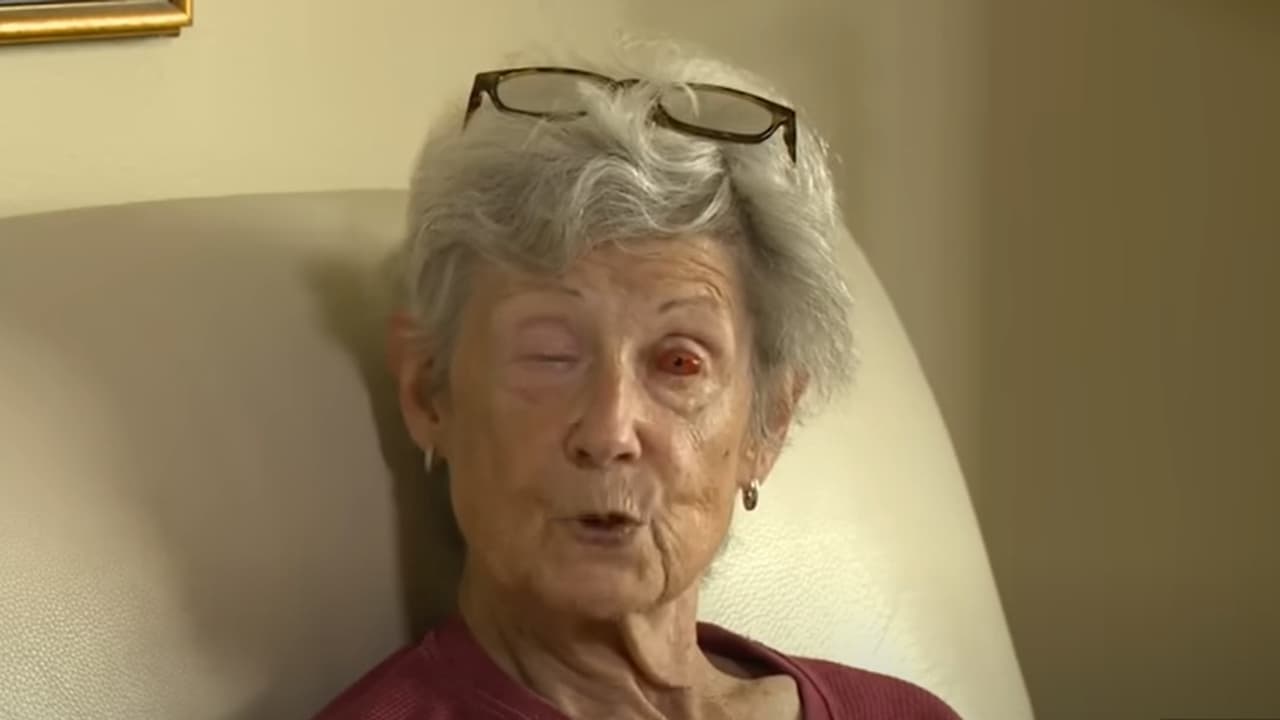A 75-year-old Canadian woman regained her sight after a decade of blindness through a rare “tooth-in-eye” surgery (OOKP). Using her own tooth to anchor an artificial cornea, she can now see colors, nature, and her loved ones, gaining new independence
After a decade of blindness, a 75-year-old woman from British Columbia is seeing the world again—thanks to a rare and extraordinary surgery that uses a patient’s own tooth to restore vision.
A Decade in Darkness
Gail Lane, from Victoria, Canada, lost her sight ten years ago when an autoimmune disorder severely scarred her corneas. The damage left her unable to see, relying on others and assistive apps to navigate her daily life.
But in February, her life changed dramatically. Lane became one of the first Canadians to undergo a highly specialized operation known as osteo-odonto keratoprosthesis (OOKP), often called the “tooth-in-eye” surgery.
How the Procedure Works
Developed in Italy over 40 years ago, OOKP is typically reserved for patients in advanced stages of corneal blindness where conventional cornea transplants are no longer an option. The technique involves:
- Removing a tooth and shaping it into a small plate.
- Embedding an artificial cornea into the tooth segment, which is then placed temporarily in the cheek to grow blood vessels and connective tissue.
- Implanting the prepared tooth-cornea device into the patient’s eye, allowing it to function as a new optical pathway.
The NHS describes OOKP as a last-resort but potentially life-changing procedure for people with end-stage corneal disease.
First in Canada
The pioneering operation in Canada was led by Dr. Greg Moloney at Vancouver’s Mount Saint Joseph Hospital. Dr. Moloney explained that the tooth serves as a durable anchor for the artificial cornea:
“We need a structure that is strong enough to hold onto the plastic focusing telescope, but is not going to be rejected by the body,” he told CBC News.
Seeing the World Anew
Lane’s recovery was gradual. She first noticed the difference between light and dark, then movement—such as her partner’s service dog Piper wagging his tail. Over time, her vision sharpened, allowing her to see her dog, trees, flowers, and even her partner’s face—whom she had never seen before despite meeting him after losing her sight.
“I can see lots of colour and I can see outside now. The trees and the grass and flowers—it’s a wonderful feeling,” Lane said in an interview with CBC News.
Although she cannot yet see her own reflection, Lane hopes a new pair of glasses will improve her vision further.
A Life Restored
The surgery has given Lane more independence. She can now choose her own clothes without needing assistance from apps or volunteers and is looking forward to walking short distances on her own.
“It’s been a long wait, but well worth it,” she said. “I’m just looking forward to seeing what I can do again—and trying to be patient while my brain adjusts.”
Lane’s story highlights both the challenges of blindness and the remarkable possibilities of medical innovation.
Sources:
* CBC News, “Tooth-in-eye surgery restores sight for 75-year-old B.C. woman”
* NHS, “Osteo-odonto-keratoprosthesis (OOKP)”
